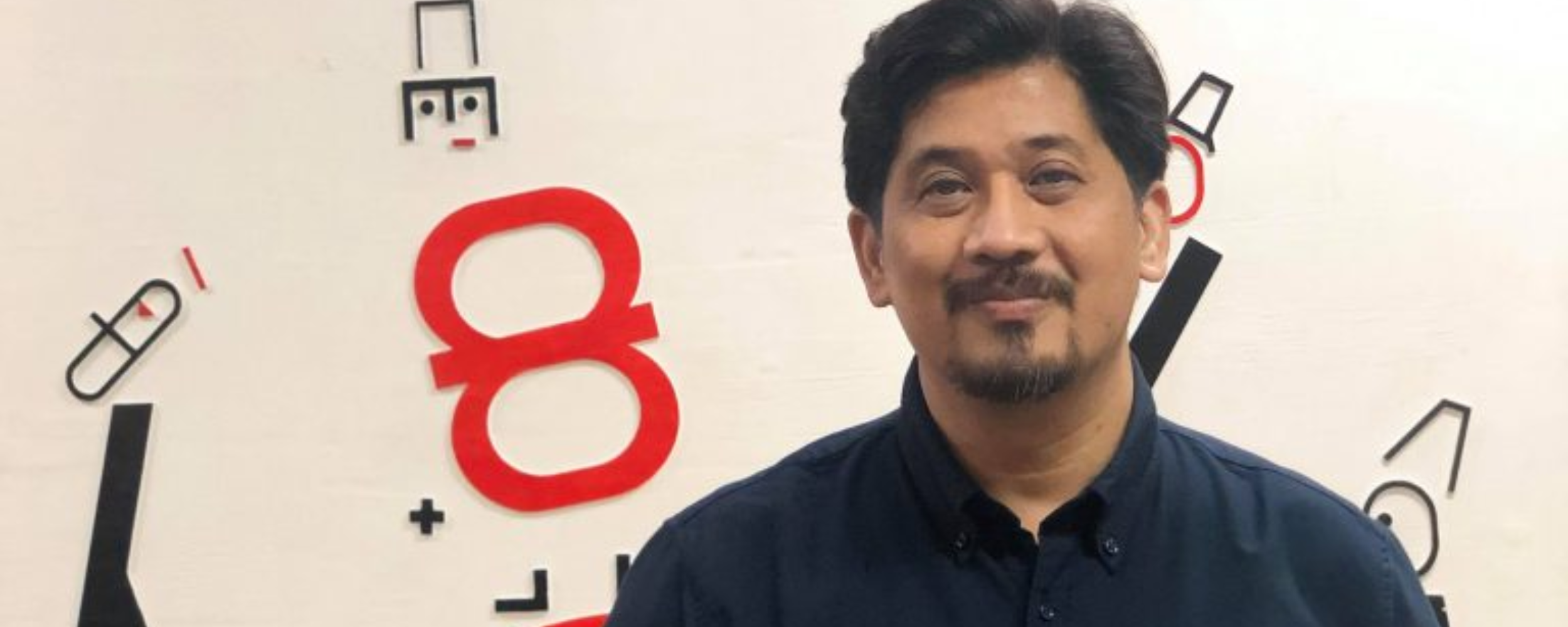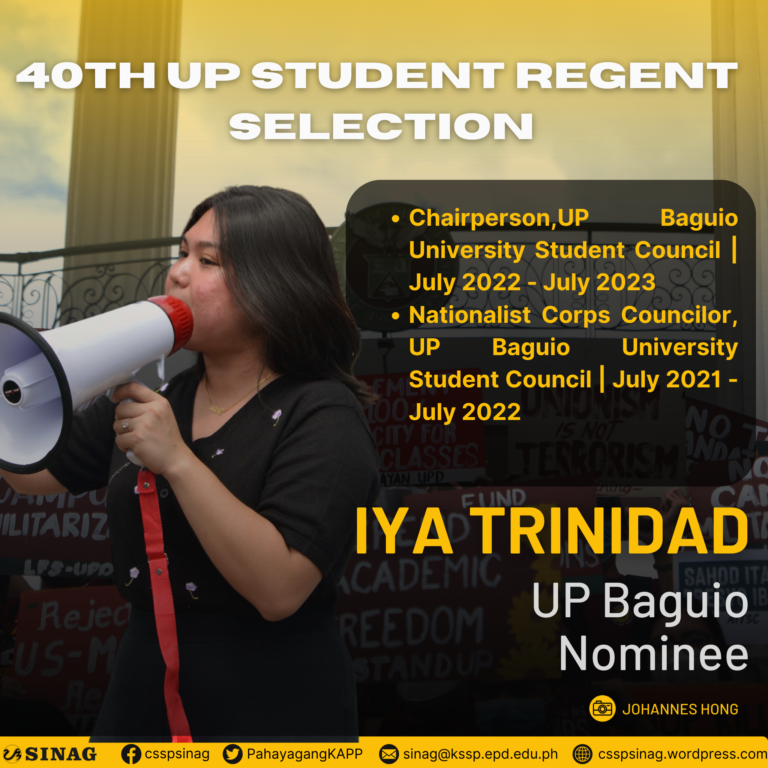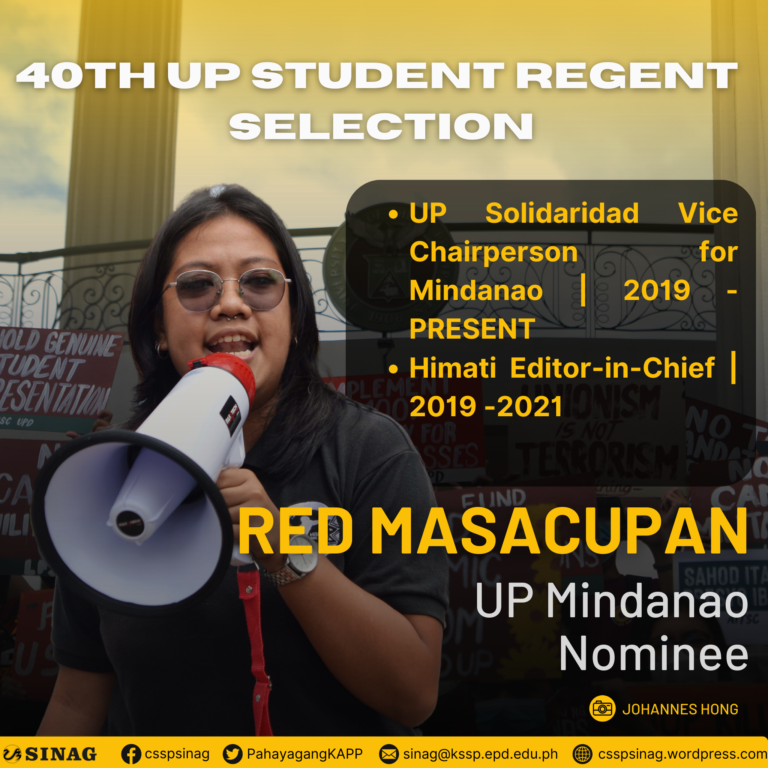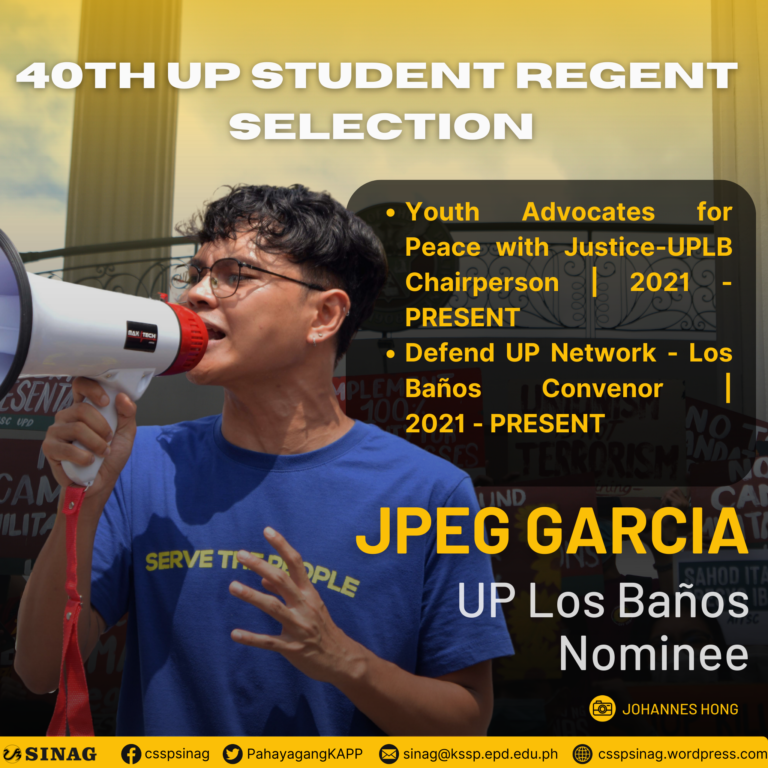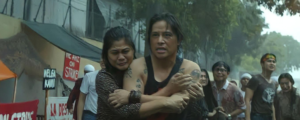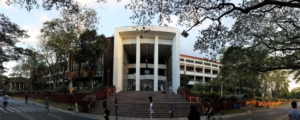
UP College of Science dean Prof. Giovanni Tapang amplified the call for the University to safely return to “normalcy.”
“Education is experiential. The best lessons are those taught through a combination of theory and practice in the laboratories, classrooms, studios, workshops, and in our communities,” he expressed.
Tapang asserted that physical interaction is crucial to be done face-to-face, alongside laboratory and field classes, regardless of the degree program.
The Office of the Vice President for Academic Affairs (OVPAA) earlier released the OVPAA Memorandum 2022-88, stating that UP Diliman is set to transition to blended learning for the upcoming 1st semester for A.Y. 2022–2023.
Classes will be offered in three models: (1) blended online learning, employing a combination of asynchronous and synchronous online learning; (2) blended block learning, employing a combination of blocks of online learning (asynchronous and/or synchronous) and f2f learning; and (3) classic blended learning, employing a combination of f2f and asynchronous online learning.
READ: http://bitly.ws/tmWQ
Classes with F2F components are set at a departmental level, in consideration of the courses’ needs and expected learning outcomes.
However, since classes are mostly enlisted individually, numerous students raised concerns about possible challenges. Students, especially those from their provinces, may be compelled to attend the University for only a few classes in classic blended learning or blended block learning model.
Some individuals have already stressed this, citing the struggles they have to put up with in terms of lodging and other logistical concerns. They likewise raise the vagueness and rather rushed dissemination of guidelines that are still yet to be finalized.
Related: https://bit.ly/3pf6op6
Additionally, acquiring residence at or near the University can be hectic since UP Diliman Office of Student Housing dorm application and course enlistment will take place both this August. This adds a burden to the uncertainty of being granted a slot in any class with a F2F component. Such cases may pose logistic and financial problems, especially during the time of the pandemic and rising prices for basic necessities.
Prof. Tapang called for the University to set decisive and clear guidelines much earlier so that students, faculty, and staff can prepare adequately.
Prof. Tapang asserted, “[s]tudents…need to prepare to go back to the campus…[W]e will have to face the reality of the high costs of transportation, daily provisions, and boarding house rents. However, we should not expect to solve the chronic problems of education as a precondition to normalize F2F instruction…Our faculty has to be ready to provide mentoring to students, ensuring that learning is grounded in our social realities. Our staff need to see that the valuable support services they provide are much more effective when done in their offices in the campus. The University has to renormalize working in offices again while maintaining the digital workflows which have worked during the pandemic.”
“We need to breathe life again to the University by resuming on-campus operations. We need our jeepneys to ply their usual routes, our food concessionaires to offer places to eat again, and restore other essential auxiliary services,” he added.
Last August 8, Monday, the ISKOnsultasyon: UPD Townhall on Ligtas na Balik-Eskwela was held.
READ: http://bitly.ws/tn2d
Students who wish to participate in F2F class activities must first secure medical health insurance from UP Health Services (UPHS). Additionally, the 15-unit minimum will be restored, despite the lack of General Education (GE) units, to “slowly” transition to “normalcy.”
Sectors within the university continue to clamor for a more inclusive and safe return to the campus. The Rise for Education – UP Diliman intensified these calls through the Student Agenda.
READ: https://bit.ly/3Qvor6a
The agenda emphasizes the need for student representation, ensuring assistance to students in terms of special needs, housing, health, and the demand for academic ease and defense for academic freedom and democratic rights.
Featured image courtesy of Giovanni Tapang

